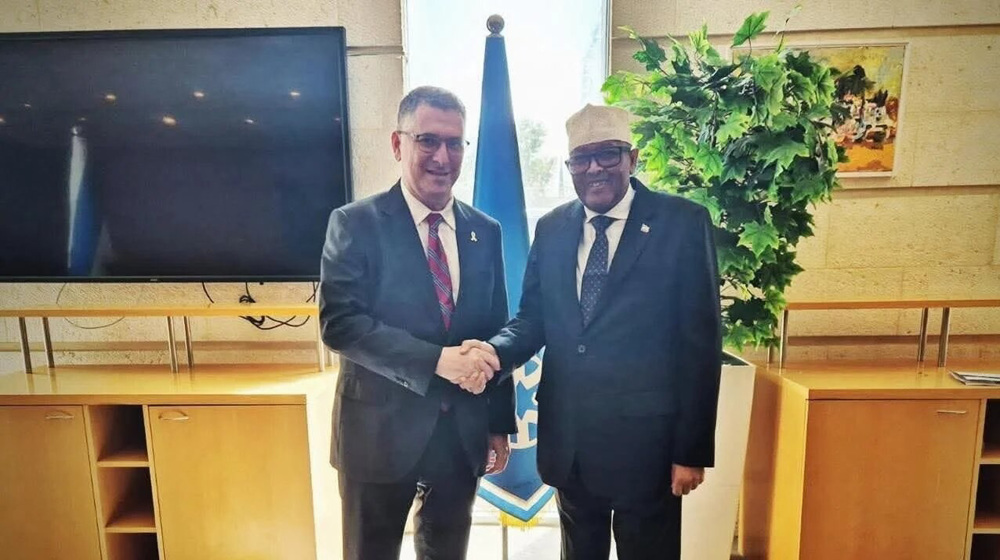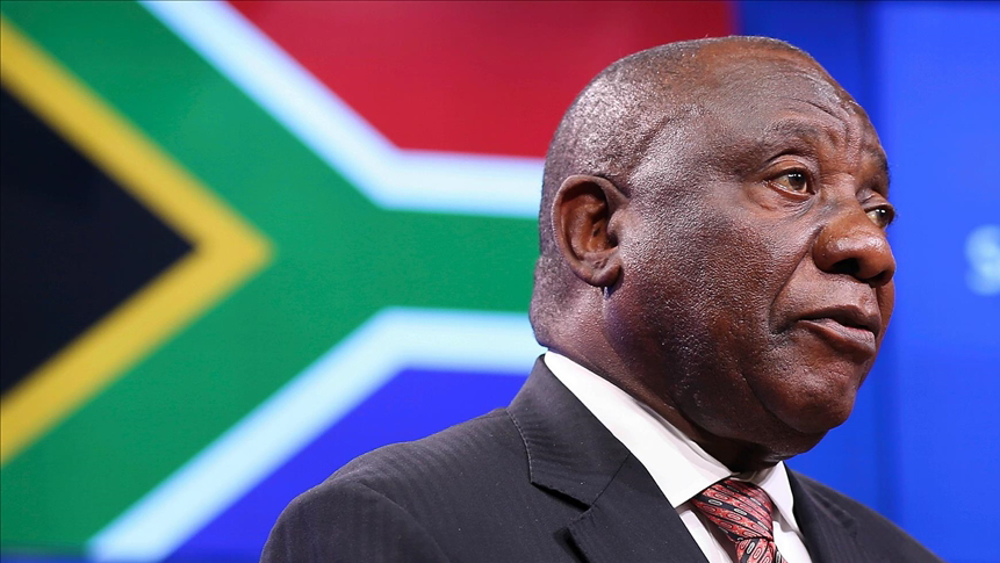Three UN peacekeepers killed in Central African Republic on eve of national elections
Unidentified “armed combatants” have killed three UN peacekeepers in the Central African Republic (CAR), the United Nations says, as the country prepares for Sunday’s key presidential and legislative elections amid the continuation of fighting between rebels and government forces.
"Three peacekeepers from Burundi were killed and two others were wounded" following attacks on UN troops and Central African national defense and security forces, the UN said in a brief statement Friday.
It added that the assaults took place in Dekoa, central Kemo Prefecture, and in Bakouma, in the southern Mbomou Prefecture, without providing further details.
The attacks came hours after a rebel coalition fighting the government called off a ceasefire and reiterated calls for the suspension of the elections, as well as the arrival of troops from Russia and Rwanda to shore up the government of the resource-rich country.
However, the Constitutional Court on Saturday rejected final appeals by the opposition to postpone the vote.
The CAR said on Monday that Russia and Rwanda have deployed hundreds of troops to the nation following an alleged military coup plot.
"Russia has sent several hundred soldiers and heavy weapons" within the framework of a bilateral cooperation agreement, CAR’s government spokesman Ange Maxime Kazagui announced on Monday, adding, "The Rwandans have also sent several hundred men who are on the ground and have started fighting."
Stephane Dujarric, spokesman for the UN secretary general, denounced the attacks on the peacekeepers, urging the CAR authorities to investigate the "heinous" assaults.
He also warned that "attacks against United Nations peacekeepers may constitute a war crime."
Several powerful armed groups in the CAR accused President Faustin Archange Touadera's government of seeking to fix the elections and warned of a violent response.
The 63-year-old incumbent is seeking a second term in the vote, which is a crucial test for one of Africa's most volatile countries.
Earlier, leaders of the three main armed rebel groups in the CAR formed a coalition and accused former President Francois Bozize of an "attempted coup" ahead of the elections.
The rebel groups said they had invited "all other armed groups to join."
They also urged the coalition members to "scrupulously respect the integrity of the civilian population," and to allow vehicles belonging to the United Nations and to humanitarian groups to circulate freely.
Bozize, who recently returned after years in exile, has been barred from running in the election by the country's top court as he had been sought in an international arrest warrant filed by the CAR on charges including murder, arbitrary arrest, and torture.
A spokesman for the UN peacekeeping force in the Central African Republic, or MINUSCA, said on Wednesday that the key city of Bambari, which had earlier been seized by rebels, is now in the hands of UN peacekeepers and national security forces.
“The situation in Bambari is under control,” Abdoulaziz Fall told reporters in the capital Bangui. “The civilians are starting to return. The armed groups have been pushed back into the bush.”
At least six candidates had filed appeals arguing that the polls should be delayed due to insecurity in the CAR, and the recent withdrawal of one of the candidates.
"There is the decision of the Constitutional Court, which I respect, and the reality on the ground, which is that many voters will not be able to vote," said Anicet Georges Dologuele, Touadera's main challenger who is being backed by Bozize.
Rebel groups launched an offensive last week and threatened to march on Bangui, in what the government described as an attempted coup. However, their progress was halted with international help.
A three-day ceasefire brokered ahead of the elections fell apart Friday with the new rebel coalition, known as the Coalition of Patriots for Change (CPC), announcing that it would resume its push for the capital.
The CAR spiraled into conflict when Bozize was ousted as president by the Seleka, a rebel coalition drawn largely from the Muslim minority.
The coup triggered fighting between the Seleka and so-called "anti-Balaka" self-defense forces, who are mainly Christian and animist.
France intervened militarily in its former colony, and after a transitional period, elections were staged in 2016 and won by Touadera.
Inter-communal fighting has receded in intensity in the last two years, but militia groups hold sway over two-thirds of the country, often fighting over resources.
The CPC unites all the groups that emerged from the Seleka force with anti-Balaka militants against Touadera's government.
VIDEO | Istanbul demonstration voice support for Iran amid US tensions
VIDEO | Israeli settlers attack Palestinian Bedouin community, injure 13
Palestinian Ambassador’s residence in Tehran attacked amid terror wave
Syria's HTS regime agrees to truce with SDF after its troops advance
EU mulls over $100bn in US retaliatory tariffs over Greenland
VIDEO | Trump's presence sparks major protests at Davos Forum
President Pezeshkian vows historical Iran-Iraq relations will remain stable
VIDEO | Slamming foreign-backed terrorism in Iran














 This makes it easy to access the Press TV website
This makes it easy to access the Press TV website